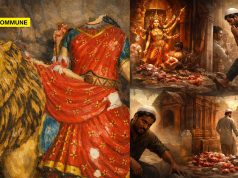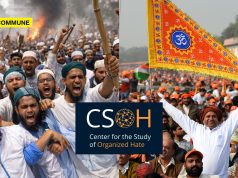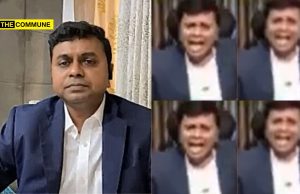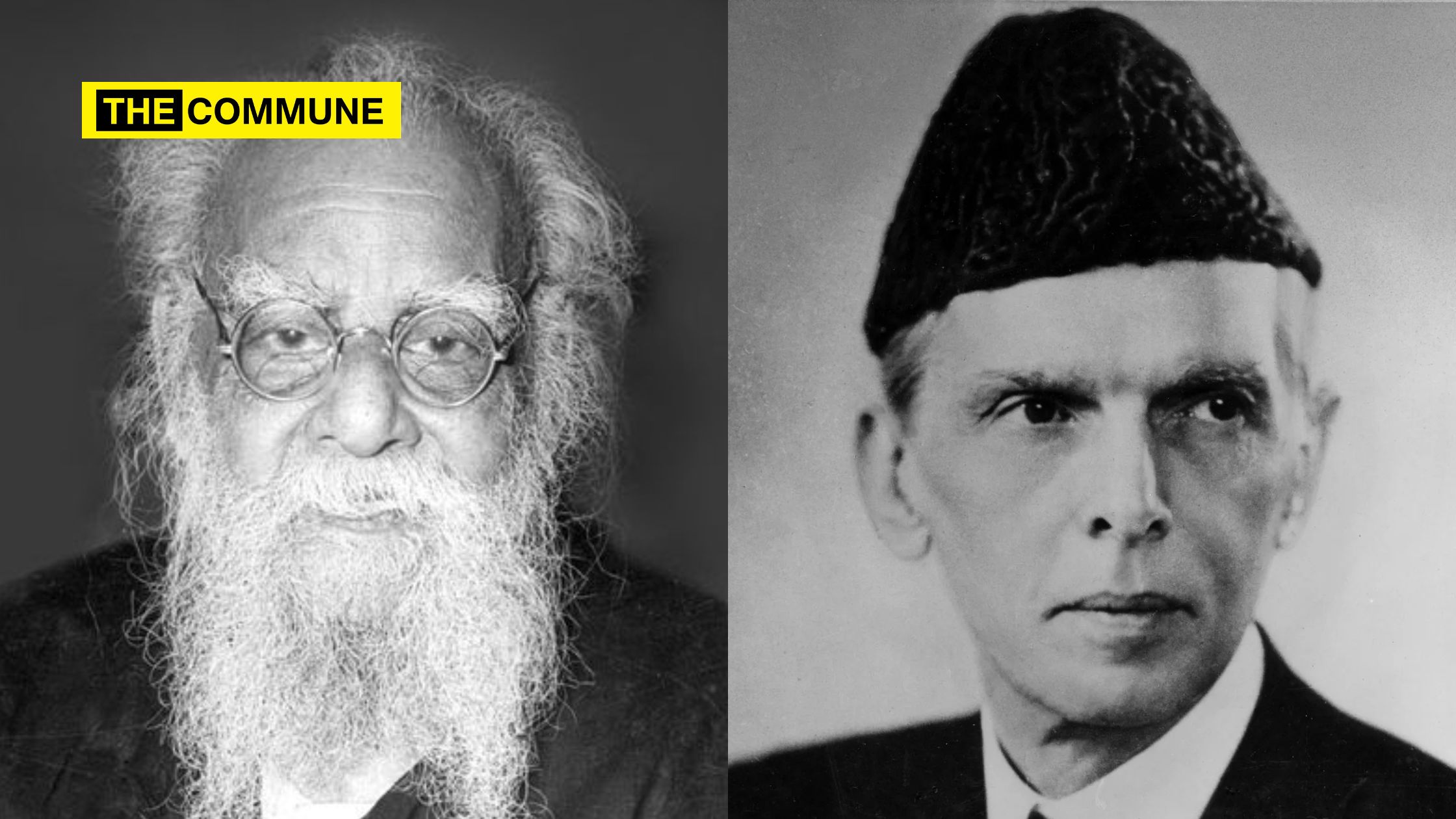
E.V. Ramasamy Naicker (hailed as ‘Periyar’ by his followers) was someone who opposed the very idea of India and was dead against the Indian National Congress and Mahatma Gandhi.
He had called for a Dravidistan along the lines of Pakistan and also tried to collude with Muhammad Ali Jinnah for the same.
EVR had met Jinnah four times – once at Bombay, twice at Madras and once at Delhi.
EVR’s Demand For Dravida Nadu
EVR with his anti-Hindu tirade was able to closely move with Muslim leaders which increased considerably during 1930-40.
When the third Majilissul Ulema Conference was held in Erode, Islamist leaders like Maulana Mohammed Ali, Maulana Shaukat Ali (aka the Ali Brothers of Khilafat Movement), Maulana Abdul Kalam Azad, Hakim Hajmal Khan, Chuadhrikali Kussaman reportedly stayed at EVR’s house.
In December 1938, EVR made the demand for a separate Dravida Nadu in his presidential address at the 14th Confederation of S.I.L.F. He met Sir Stafford Cripps and put forward the demand of Dravidanad in 1939.
Jinnah declared that the Muslims should observe December 22, 1939 as “Day of Deliverance” to mark the cessation of Congress Governments, which was supported by EVR who called upon his party cadres to mark the Day of Deliverance on a “grand scale” to rid the country of the “menace of the Congress”.
A separatist conference was held in June 1940 at Kanchipuram when EVR released the map of the proposed Dravida Nadu which comprised of the Tamil, Telugu, Malayalam and Kannada areas.
A meeting of EVR, Ambedkar and Jinnah took place on January 8, 1940 in which the leaders had apparently discussed about humiliating Congress and Congress leaders by urging Muslims, Scheduled Caste and non-Brahmins to leave Congress and join non-Congress parties. All of the agreed to create more problems for Congress while EVR extended his full support to Jinnah for the Muslim cause.
On March 25, 1940 at Lahore session of Muslim League, Jinnah gave a clarion call for a separate Pakistan and and within seven months, on 24 August 1940, the EVR at the Tiruvarur Provincial Conference called for a separate Dravida Nadu.
EVR and Jinnah met in Madras atleast twice (once during the Madras session of the Muslim League in April 1941) and discussed about Dravidastan and Pakistan. It is said that Mohammed Ismail, the convenor of Muslim League in Madras had arranged for the meeting between Jinnah and EVR.
EVR supported Jinnah’s demand for a separate Pakistan, salivating for support from him in return. However, Jinnah saw him as a threat to his own plans and showed EVR the finger.
How Jinnah Treated EVR
Initially, Jinnah had extended his sympathies to EVR’s cause. In fact, when he had come to attend the 1941 Madras session of Muslim Leage Jinnah propounded three nations – Hindustan, Pakistan and Dravidastan for Hindus, Muslims and Dravidians respectively.
However, Jinnah had to separate himself from the separatist movement of Dravidians because of pressure from Ulema as according to them, anybody who was not a Muslim was a kafir, thereby watering down the cause of a Muslim nation.
From then on, Jinnah’s reply to EVR indicates a luke warm reaction and lack of sufficient interest in the objectives of EVR’s Dravidian Movement.
On 9 August 1944, EVR wrote to Jinnah to take up the issue of Dravidastan along with Pakistan.
In his letter to Jinnah, EVR wrote “My dear Jinnah, I have been watching carefully the proceedings of Mr Rajagopalacghariar’s formula towards solving the dead-lock and your desire to receive Mr Gandhi at your residence in Bombay on your return which will probably be about the middle of August. It is welcomed in political circles. Though I have no full hope, there are signs of change as our opponents have come forward to settle the Hindu-Muslim questions, especially in relation to Cripp’s offer.”
He said that “Congressites are experts in twisting words” and that “they can say anything and give meaning in whatever manner they think”.
“Kindly excuse me for reminding you about our discussions relating to Pakistan and Dravidasthan while we were at Madras and Delhi and your assurance that you would plead for both as one. Here in South India, I considered the questions as one and done my best to solve the problem as far as possible.“, EVR prostratingly wrote to Jinnah.
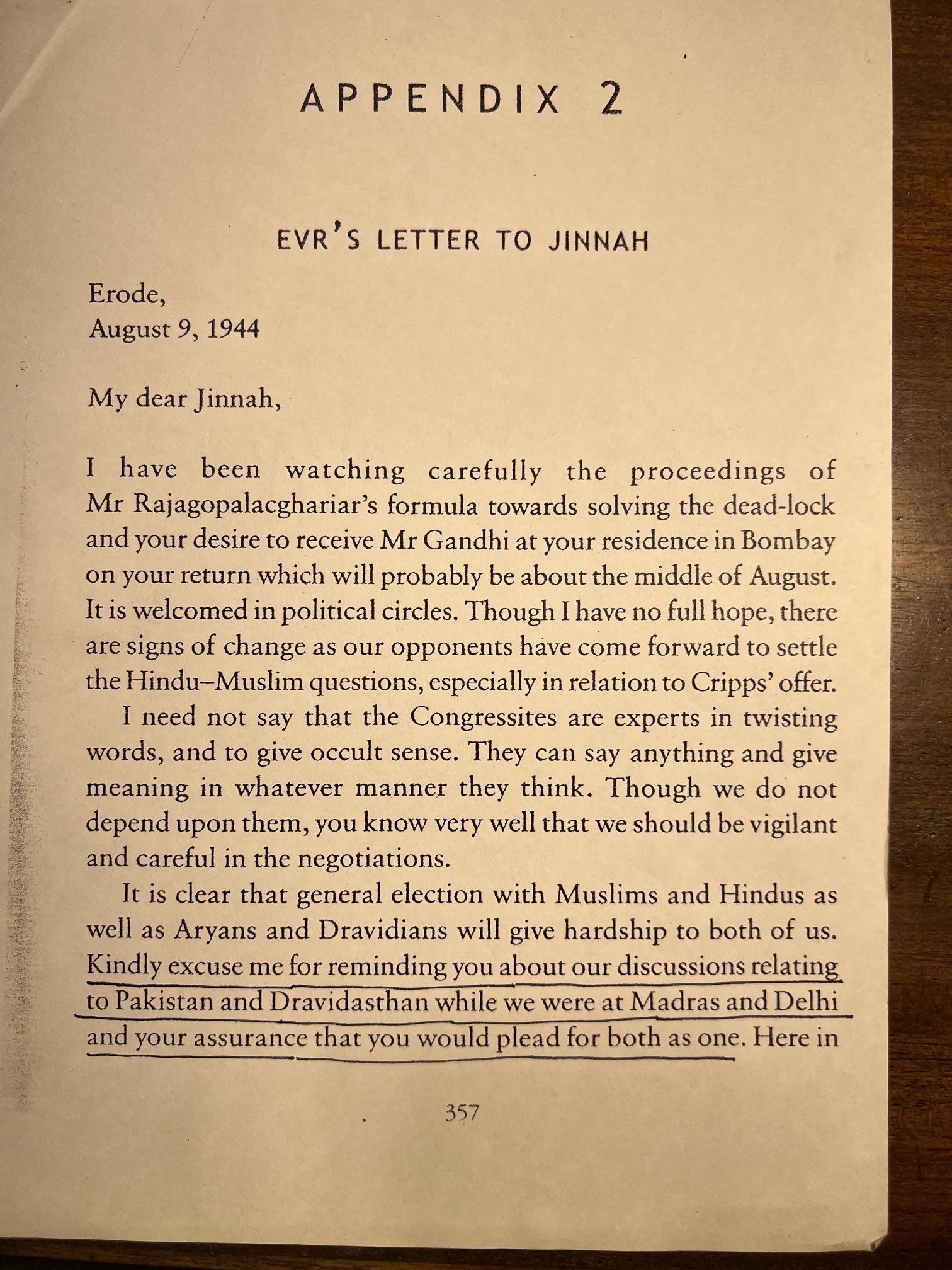
Replying to this letter on 17 August 1944, Jinnah scathingly wrote to EVR calling him “undecisive”.
“I have always had much sympathy or the people of Madras 90 percent of whom are Non-Brahmins, and if they desire to establish their Dravidasthan it is entirely for your people to decide on this matter. I can say no more, and I cannot speak on your behalf.“, he said.
“I have made the position clear to you and your colleagues when I was in Madras more than once, but hitherto I have noticed that in your activities you have been undecisive. If the people of your province really desire Dravidasthan, then it is for them to assert themselves.“, Jinnah replied to EVR.
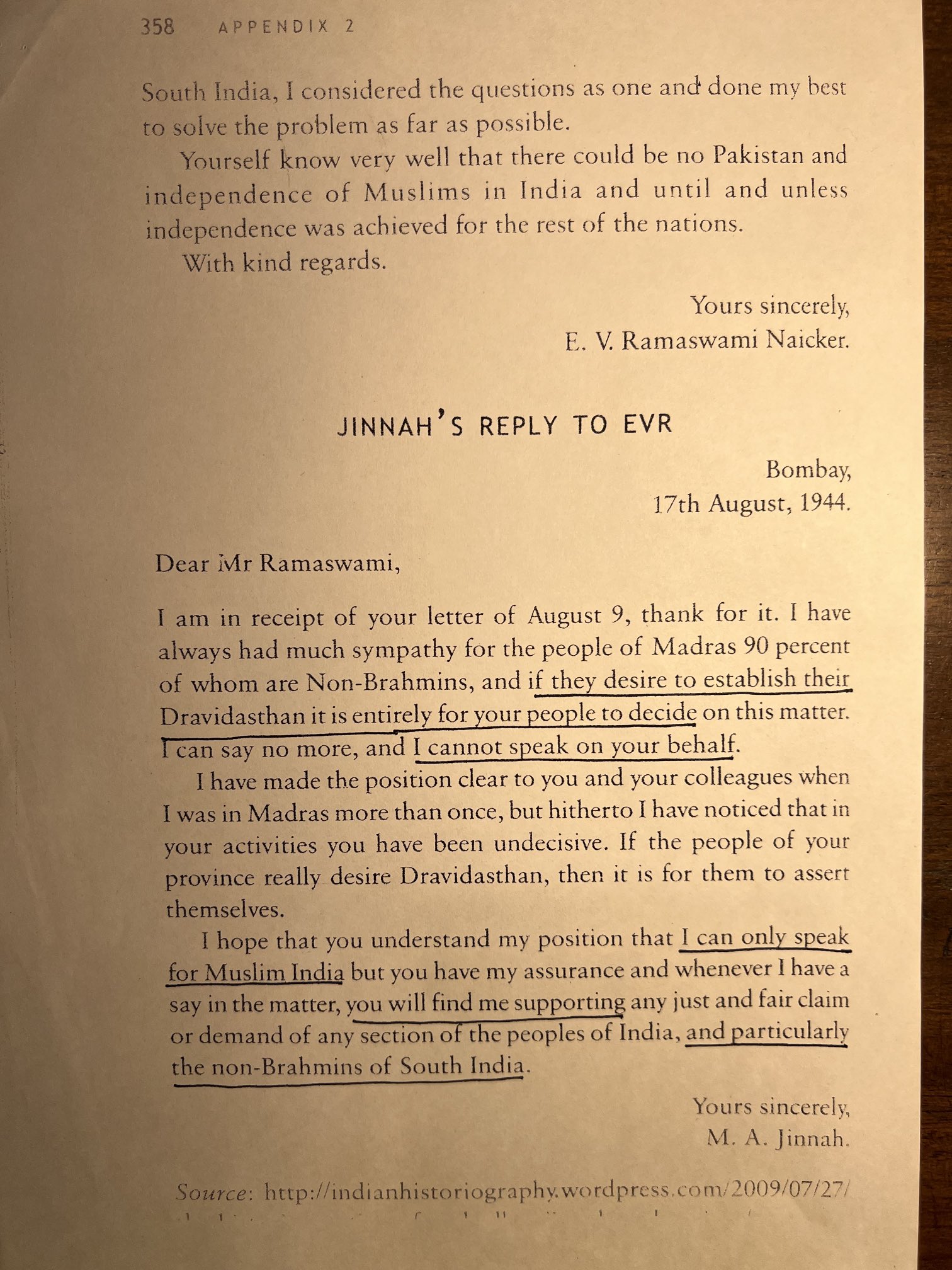
The Takeaway From The Episode
The letter is reflective of the personalities of the two people, their extent of inclusiveness of the other’s community and their support of each other’s divisive and separatist objectives.
The letter is reflective of Jinnah and the Muslim League’s attitude towards the request of Hindu leaders and Hindus in general. While EVR’s support for Jinnah, the Muslim League and India’s muslims, was straight forward, open, unconditional and unwavering, Jinnah’s support of EVR’s Dravidian Hindu cause was quite the opposite – Jinnah makes it clear that his sole interest is his objective of Muslim welfare and muslim statehood.
Jinnah is blunt and makes it clear that, EVR’s fight (the Dravidian Movement, social equality for the Hindus and a separate Dravidian statehood) is not his fight and that he would not be extending the kind of support that EVR expects from him.
On a lighter vein, one can appreciate Jinnah’s straight forwardness but it is important to note that he prefers to keep the Muslim cause separate from the Hindu cause, in spite of EVR’s unconditional, inclusive support for the Muslim cause. Jinnah keeps his Muslim cause separate even though EVR’s Dravidian statehood cause and the equal opportunity and social equality Hindu cause, is one that is inclusive of Dravidian Muslims. EVR does not exclude Muslims from his Dravidian causes but Jinnah does not hesitate to promptly disassociate himself from the Dravidian cause which incidentally is non-Muslim.
EVR and his likes, solidly supported the Muslim cause. Jinnah rode on the support of a divided Hindu, “secularist” vote and achieved his objective of a separate Muslim homeland. On the other hand, EVR and his secularist/atheist gang did not garner significant support from the Muslims, did not accomplish their objectives and continue to struggle with meeting their goals, to this day.
Jinnah as well as the British had identified an opportunity in the consistent pattern of a lack of unity among the Hindu communities and took advantage of it, in every possible manner. They rode on the back of misguided or supposedly “aggrieved” Hindus, accomplished their goals and secured significant wins at the expense of the larger Hindu community.
E.V Ramaswamy’s obsession with dividing the Hindu community across caste lines, rather than staying united while addressing social injustices within the community had worked to the advantage of non-Hindu leaders and their communities.
Click here to subscribe to The Commune on Telegram and get the best stories of the day delivered to you personally.


